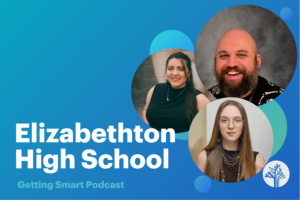What I’m seeing: anything, anytime learning

This is the second in a series of ten (or more) blogs on edtech startup categories where there seems to be strong activity. Yesterday I wrote about productive post-sec–folks serious about academic outcomes as well as cost (and, in some cases, financial returns). Today we’re exploring the dynamic category of Informal learning–non-degree seeking “I need/want to learn something” category. In some cases these options are an alternative to formal post-sec. (And, just so you don’t think I left out a lot of cool stuff, the next category we’ll look at certification, credentialing and employability.)
Jimmy Wales launched the era of ‘anyone can learn anything anywhere’ with Wikipedia a decade ago. Curtis Bonk chronicled the rise of free in The World is Open. My friend Mike Smith and the Hewlett Foundation deserve some credit for early leadership on open education resources (OER). Notable developments in OER include Khan Academy launched in 2006 and iTunes U launched in 2007.
The explosion of free resources was accompanied by accelerated affordable options like Western Governors University (featured many times on GettingSmart.com including here) and, in the second half of the last decade, the explosive growth of for-profit higher ed when University of Phonix was joined by Michael Clifford-led IPOs of Grand Canyon and Bridgepoint.
The other big historical category of for-profit post-sec is test prep. All of this free stuff has obviously had some effect on the test prep category evidenced by the sale of Princeton Reviews namesake test prep business. Web 2.0 competitors like Grockit have added a social element and are becoming more adaptive. There’s lots of activity around flashcards, but I won’t be enthusiastic until capabilities are multi-modal.
Recently MOOCs, massive open online courses, have been the rage. Sebastian Thrun spearheaded Stanford’s free computer science courses before quiting to create a return-seeking startup Udacity, “committed to free online education for everybody.” At MIT, Anant Agarwal is leading development of a portfolio of free courses, the effort is called MITx.
What’s next? What I’m seeing is activity in three categories: peer, now, do.
- Peer. For most of us learning is social and context is important, so peers and how they interact with us is a big deal. We’re near the end of the first generation of flat, sequential and lonely online learning. The next generation is mobile and social with a lot of peer interaction. P2PU is a peer-to-peer learning site doing some cool work Mozillia on badges for emerging job clusters like web design. Udemy* allows learners to build and take online courses–some are free, the rest are cheap. One reason General Assembly* courses are so popular is that really smart people working in startups take the courses–the peer learning opportunities are a big draw.
- Now. Blended learning is new to K-12 but companies have been blending their training for more than a decade with an increase in just-in-time resources instead of just-in-case training. We’re beginning to see more sophisticated training approaches that combine adaptive assessment, semantic tagging, and JIT learning.
- Do. Building on the DIY/maker movement (and the employability segment we’ll cover next) we’re seeing more learning by doing. E[nstitute], featured two weeks ago on GettingSmart.com, is an apprenticeship-based alternative to higher education. Starting in August, young people will be placed in hot NYC startups and supported with learning opportunities. We could also include some of the social tools for social impact startups like Purpose.com in this category–sites that connect, inform, inspire, and mobilize people to make a difference.
Let’s not forget the most important learning category–search–which combines elements of peer, now, do.
More free stuff, more peer-to-peer, and more DIY all pose monetization challenges in the informal learning category. We’ll see lots of startups and lots of growth but only a handful of companies that figure out how make any money on anywhere anytime learning.
* Disclosure: Udemy and General Assembly are portfolio companies of Learn Capital where I am a partner







0 Comments
Leave a Comment
Your email address will not be published. All fields are required.